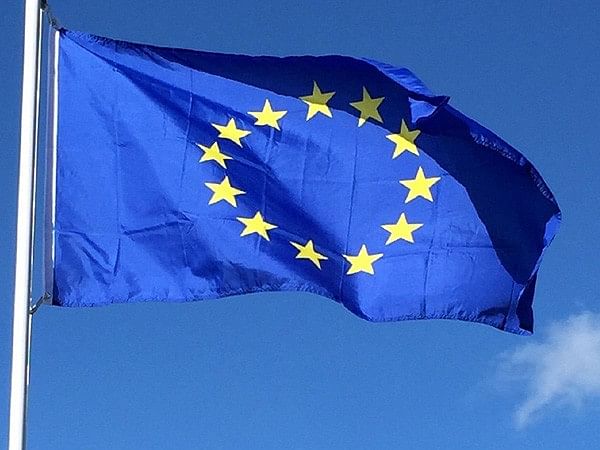Taipei [Taiwan], October 31 (ANI): Visiting Members of the European Parliament (MEPs) stated on Wednesday that China’s hostility toward Taiwan is likely to backfire, further alienating the Taiwanese people. They drew parallels to Russia’s actions, which have similarly shifted many Ukrainians’ perceptions.
In an interview in Taipei, MEP Michael Gahler likened China’s attempts to draw Taiwan into its sphere of influence to the situation in Ukraine, as reported by Focus Taiwan.
Gahler, who is the chair of the European Taiwan Friendship Group and is leading a delegation of MEPs in Taiwan, remarked,
“There were many Russian speakers in Ukraine who, for a time, questioned their identity, asking themselves, ‘Who am I living in this country?'”
Hailing from Germany, Gahler noted that following Russia’s annexation of Crimea in 2014 and its full-scale invasion of Ukraine in February 2022, many Ukrainians expressed a strong sense of national identity, declaring, “I am Ukrainian. I do not want to be regarded as Russian.” He emphasized, “Yes, I speak Russian, but I do not want to be treated in such a way. And that is not the future I envision.”
According to the report, Gahler argued that Russia’s rationale for its aggression–claiming discrimination against Russian speakers in Ukraine–has had the “opposite effect” of what it intended. He suggested that a similar outcome could result from China’s approach toward Taiwan. “The more pressure there is, the more you say, ‘No, we belong together, we stand together, and we do not want to be part of something that is so unfriendly to us,'” he stated.
MEP Bernard Guetta, also a member of the delegation, agreed. “The Beijing authorities should understand that, because of their hostility toward Taiwan, you are increasingly becoming a nation in the making–not only a country but a nation,” Guetta, from France, remarked.
When asked what impressed him most about Taiwan, Gahler stated that Taiwan serves as a “daily provocation” to China by demonstrating that a Chinese-speaking society can be organized democratically and more successfully than in the communist mainland.
Commenting on a recent European Parliament resolution that rejected China’s “misinterpretation” of United Nations Resolution 2758, Gahler indicated that it signifies “a show of unity and a widespread consensus that we oppose any unilateral misinterpretation of political circumstances.” On October 24, a significant majority of 432 votes to 60, with 71 abstentions, supported the resolution opposing China’s recent attempts to marginalize Taiwan in the international community through its interpretation of the resolution.
Gahler noted that while the U.N. resolution clearly states that the People’s Republic of China (PRC) replaced the Republic of China on the U.N. Security Council and is the sole representative of China in the U.N., it does not include any language suggesting that statehood is a requirement for international relations. He added that Taiwan should take advantage of opportunities to engage in international forums as an observer or participating entity. “There is no reason for China to interpret something against Taiwan that is not in this resolution; that is their attempt,” he said.
When asked about discussions with Vice President Hsiao Bi-khim during their meeting at the Presidential Office, Gahler mentioned that they explored ways to enhance economic cooperation between the European Union and Taiwan. He stated that the two sides specifically discussed how to reach economic agreements in certain sectors.
The report further indicated that the European Parliament had previously suggested establishing a bilateral investment agreement with Taiwan; however, many economic experts consider this move to be “too ambitious” at this time. Gahler emphasized that it is the European Parliament’s responsibility to identify mutually beneficial areas for enhanced cooperation, such as signing memorandums of understanding.
He highlighted that Taiwan is a “world champion” in semiconductors and that the European Parliament is eager to expand collaboration into artificial intelligence, a rapidly advancing field where the EU needs to “catch up” through partnerships with Taiwan.
Gahler also pointed out that the EU has often supplied the technology that Taiwan uses to develop new products. He stressed that this “mutual dependence” should be further developed to better serve the interests of both sides. (ANI)
This report is auto-generated from ANI news service. ThePrint holds no responsibility for its content.



